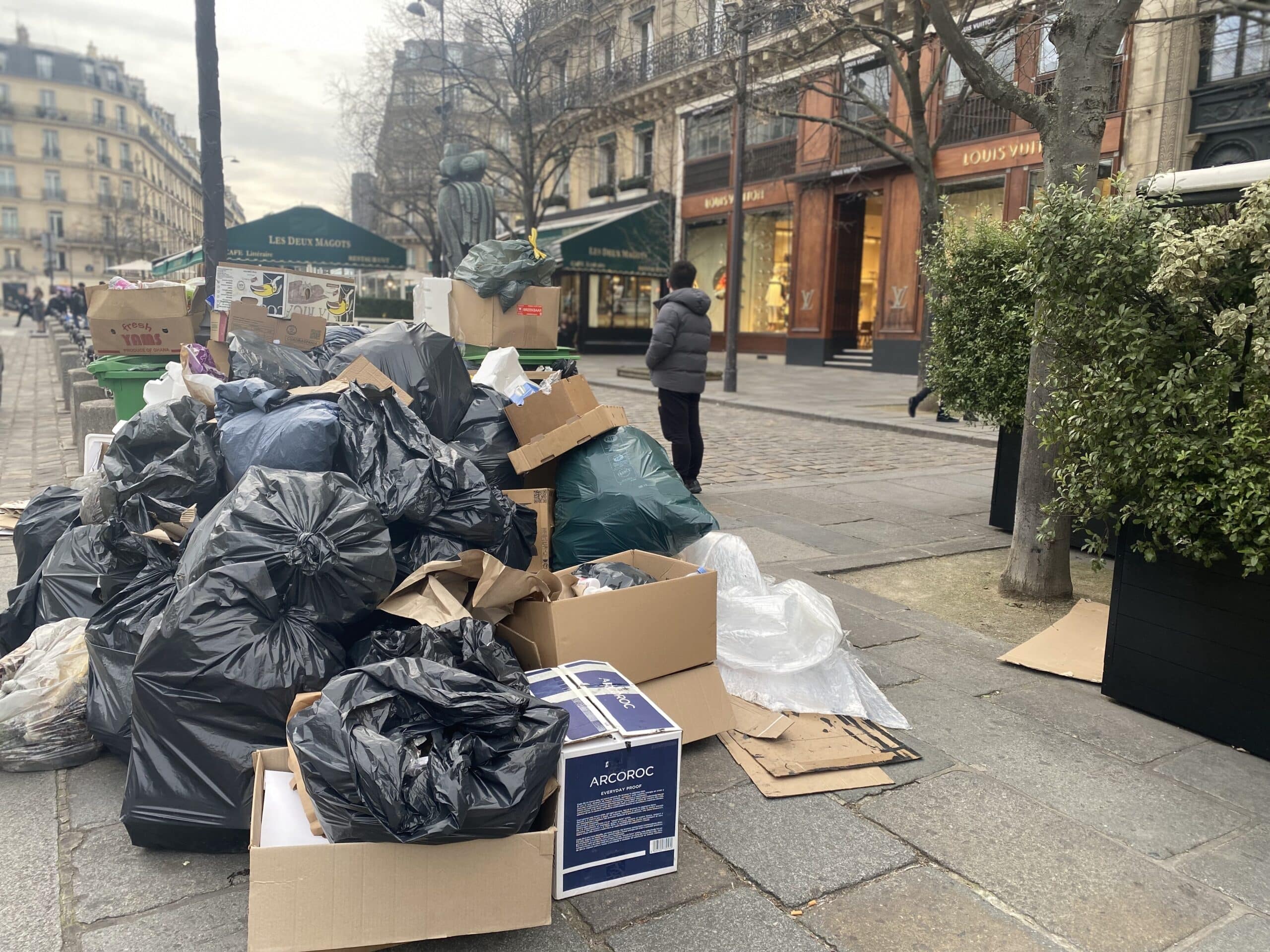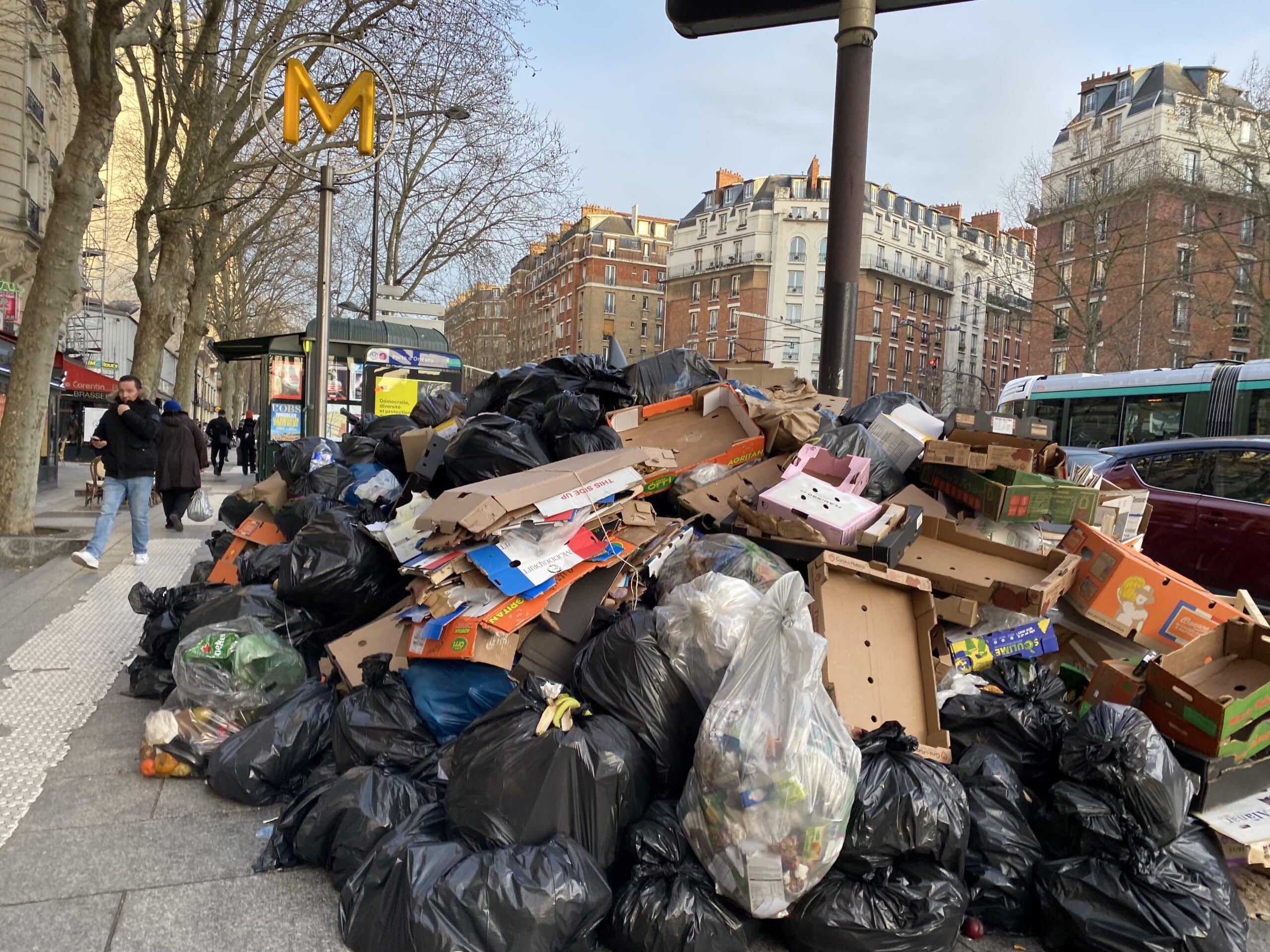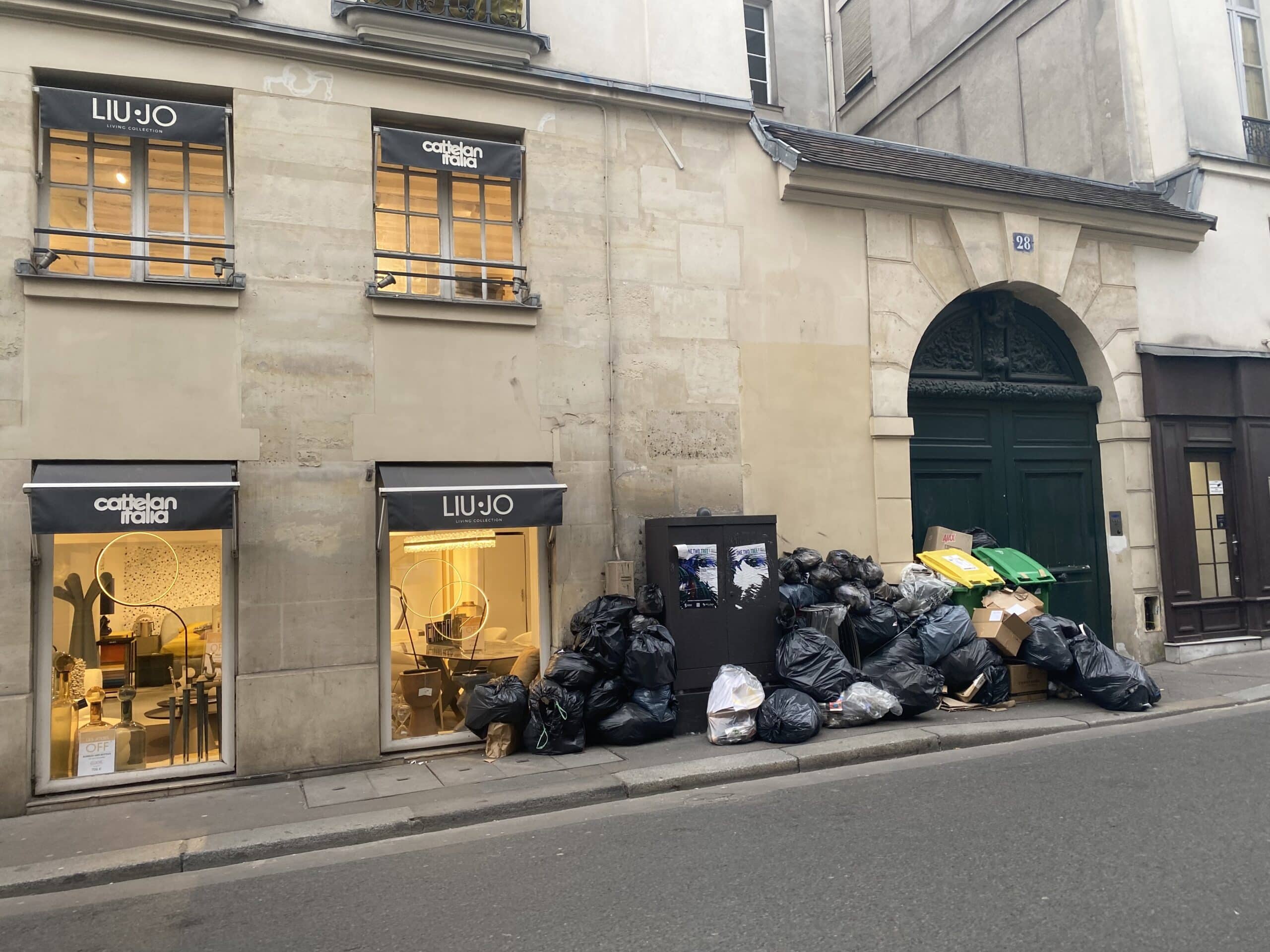Think of Paris and your mind brings up the scent of fresh baked baguettes, not the reek of rubbish on the Rue de Rivoli.

Trash accumulates meters away from the Notre Dame Church in Paris, 16 March 2023.
Typically, my morning commute to the News Decoder co-working space in the 5th arrondissement in Paris is a picturesque journey featuring Haussmannian buildings and brasseries with their emblematic red awnings.
This week, my trek to work at our Parisian headquarters looked a little different as the city’s trash collectors continue their now week-long strike.
For me and the scores of tourists – numbering almost 10 million in just the summer of 2022 – who visit the French capital each year, the trash-littered streets lie in stark contrast to the idealized City of Light promised by tourism brochures and social media posts. These last few days, I’ve collected photos of a city wrestling with questions of workers’ rights, aging demographics and inequitable working conditions.

Piles of trash in front of luxury store Louis Vuitton and famed literary café Les Deux Magots, 16 March 2023.
For months, French citizens have been out in the streets protesting the government’s proposed pension reforms, notably a two-year increase in France’s minimum retirement age. The state argues this reform is necessitated by changing demographics, but unions and workers have pointed out that these new changes would have inequitable consequences for manual laborers and those occupying low-skilled jobs.
Last week, trash collectors in France joined the movement, which has already disrupted weeks of public transport and mobilized thousands of protestors across the country.

Trash blocks a metro entrance in Paris’ 14th arrondissement, 15 March 2023.
This Monday, city authorities announced that over 5,600 tons of trash had accumulated on Parisian streets.
The effects of this waste, however, are unequal across the 20 arrondissements in Paris, as some districts are serviced by private waste management companies while others are managed by municipal authorities. In the areas where trash is managed by private companies, garbage disposal has been running semi-normally. In the remaining arrondissements, mountains of trash block metro entrances and loose garbage litters sidewalks. Trash collectors have announced a continuation of the strike until at least 20 March.

A sidewalk in central Paris is overtaken by accumulated trash, 16 March 2023.
Many Parisians support the trash collectors’ right to strike, recognizing that more passive efforts to mobilize in the past have been ignored.
Others worry about the public health consequences of such a large-scale accumulation of waste. Some have noted that loose garbage clogs up sewers and can attract pests and diseases. The movement also raises the question of how we value blue collar workers in our society.
It is perhaps counterintuitive that this present strike of garbage collectors has had more of a quotidian impact on Parisians than would be the case if the prime minister had taken a week’s holiday.
Erin Kelleher, a Canadian immigrant who lives in the Paris region, has noticed the day-to-day consequences of the garbage build-up.
“It’s made my commute longer,” Kelleher said. “The trash blocks so much of the sidewalk in some areas that there’s no longer space for two people to walk side-by-side. Some have taken to walking in the bike lane or even on the street, which slows down traffic and is, of course, dangerous.”
Three questions to consider:
- What are some arguments for and against the trash collectors’ strike in Paris?
- Should those that take trash off city streets be paid less than someone who works in an office?
- What are some of the potential effects of raising the minimum retirement age in a country?

Joyce Yang is News Decoder’s Programs & Communications Intern. She is a former classroom teacher passionate about equitable education access, intentional pedagogy and inclusive policy-making.
